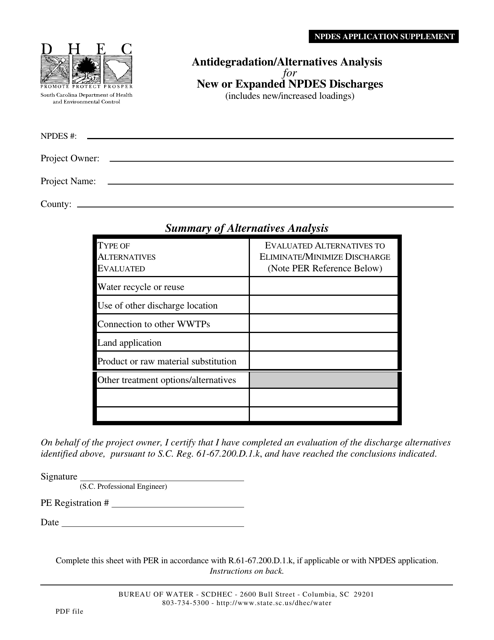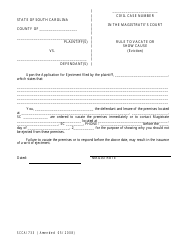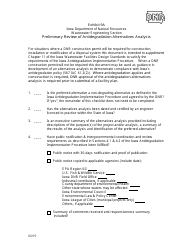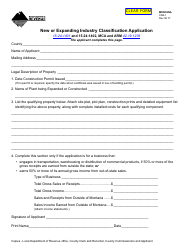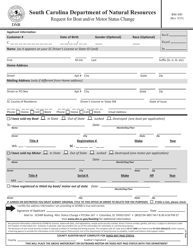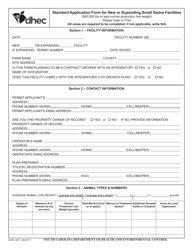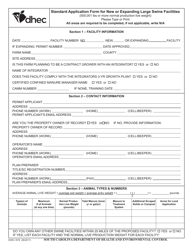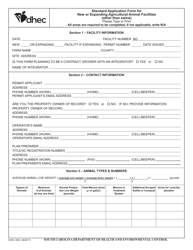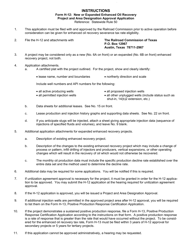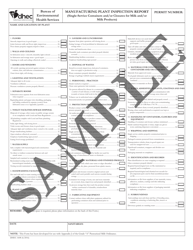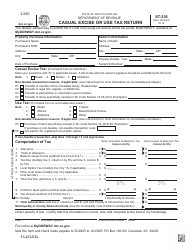Antidegradation / Alternatives Analysis for New or Expanded Npdes Discharges - South Carolina
Antidegradation/Alternatives Analysis for New or Expanded Npdes Discharges is a legal document that was released by the South Carolina Department of Health and Environmental Control - a government authority operating within South Carolina.
FAQ
Q: What is antidegradation/alternatives analysis?
A: Antidegradation/alternatives analysis is a process used to assess the potential impacts of new or expanded NPDES discharges in South Carolina.
Q: What is NPDES?
A: NPDES stands for National Pollutant Discharge Elimination System. It is a program under the Clean Water Act that regulates the discharge of pollutants into US waters.
Q: Why is antidegradation/alternatives analysis important?
A: Antidegradation/alternatives analysis helps ensure that new or expanded NPDES discharges in South Carolina do not cause significant harm to water quality and aquatic ecosystems.
Q: What are the steps involved in antidegradation/alternatives analysis?
A: The steps typically include identifying the need for a new or expanded discharge, evaluating alternative options, assessing potential impacts, and considering feasible alternatives that minimize adverse impacts.
Q: Who is responsible for conducting antidegradation/alternatives analysis?
A: The responsible party, usually the permit applicant, is responsible for conducting the antidegradation/alternatives analysis in compliance with South Carolina's regulations.
Q: What factors are considered in antidegradation/alternatives analysis?
A: Factors such as water quality standards, existing uses of the water bodies, the economic and social benefits of the proposed discharge, and available technology are considered in the analysis.
Q: Who regulates NPDES discharges in South Carolina?
A: NPDES discharges in South Carolina are regulated by the South Carolina Department of Health and Environmental Control (SCDHEC).
Q: What are the potential outcomes of antidegradation/alternatives analysis?
A: The outcomes may include the approval of the proposed discharge, the identification of feasible alternatives, or the denial of the discharge permit if it is found to cause significant harm to water quality and aquatic ecosystems.
Q: Are there any exemptions to antidegradation/alternatives analysis?
A: Yes, certain types of discharges are exempt from the antidegradation/alternatives analysis requirements, such as discharges from agricultural activities or discharges that meet specific low-impact criteria.
Q: How can the public participate in the antidegradation/alternatives analysis process?
A: The public can participate by reviewing and commenting on the draft permits and supporting documents during the public comment period, attending public meetings or hearings, and contacting the regulatory agency with their concerns.
Form Details:
- The latest edition currently provided by the South Carolina Department of Health and Environmental Control;
- Ready to use and print;
- Easy to customize;
- Compatible with most PDF-viewing applications;
- Fill out the form in our online filing application.
Download a printable version of the form by clicking the link below or browse more documents and templates provided by the South Carolina Department of Health and Environmental Control.
